#WhenWomenLead – India's celebration of women’s leadership at CSW 68
Date:
When women lead, the world thrives.
As the world grapples with multiple crises, supporting women’s economic empowerment and leadership can unlock sustainable solutions that benefit the planet, people, and economies. As the 68th session of Commission on the Status of Women (CSW 68) convenes at the UN Headquarters in New York to discuss how to address poverty and strengthen institutions and financing for advancing gender equality, this photo essay offers a glimpse into women-led development in India and how women are leading change across sectors to eradicate poverty.
The photo essay is based on "Hum: When Women Lead", a coffee table book produced by UN Women India in collaboration with the Ford Foundation. The book features an anthology of 75 stories on Indian women's transformative leadership, documented by an all-women team. It was launched in New Delhi on March 12, 2024.
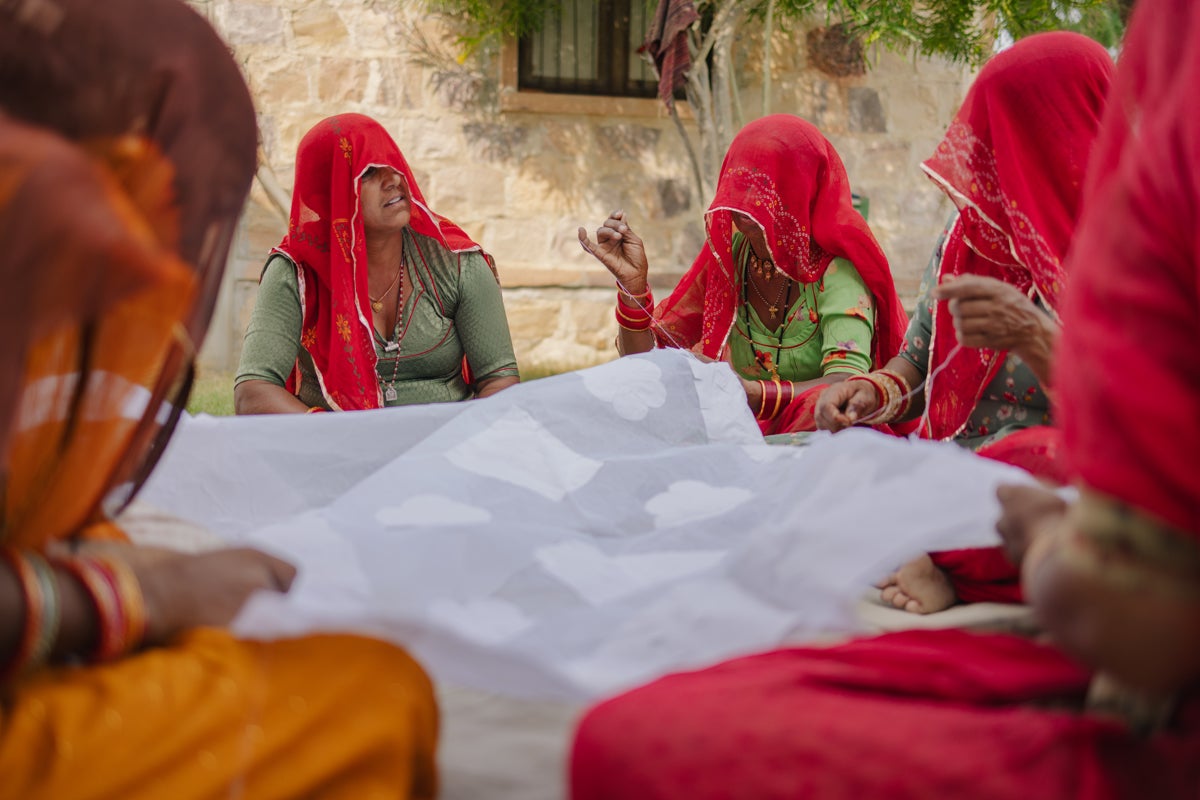
The turning point in Ruma Devi’s life came when her first born died soon after his birth. Married at 17, the teen mother took some time to come to terms with this loss. During this period of reflection, she also realised that before planning more children (which would be expected of her), she must be economically independent so that she could give her children a better life and look after their health and other needs better. It was this that drove her to mobilise other women in her village who could embroider like her and started a sewing collective. They secured a trial order from a local rural development group called Gramin Vikas Evam Chetna Sansthan (Rural Development and Awareness Organisation) and begun their entrepreneurial journey.
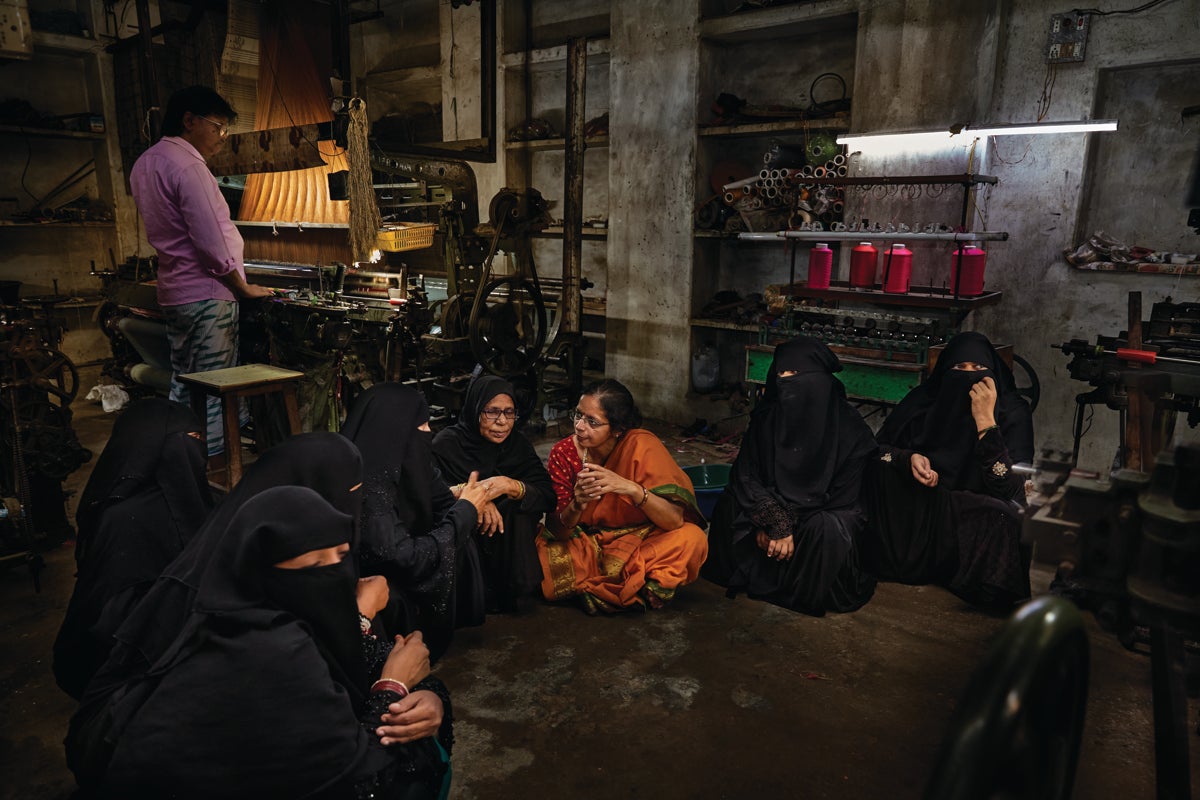
For over two decades now, Shruti Nagavanshi has been actively working in the field of human rights and social justice. As the founder of the Savitri Bai Phule Mahila Mandal, a women’s collective, her work is focused on caste-based atrocities domestic violence, sexual violence anda buse, and rehabilitation of survivors, especially from some of the most marginalised groups in India, including the Dalits and the Adivasis[1].an all-women board that ensures that women’s issues are at the core of every activity and programme.
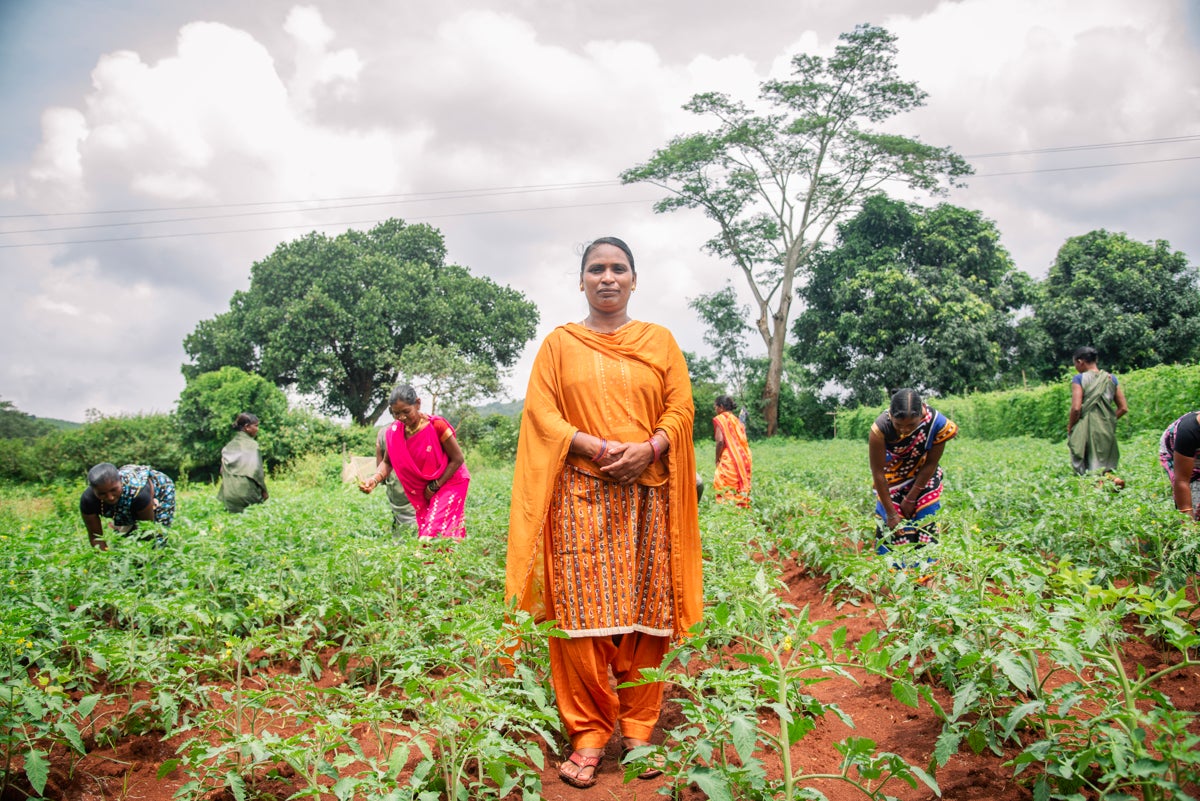
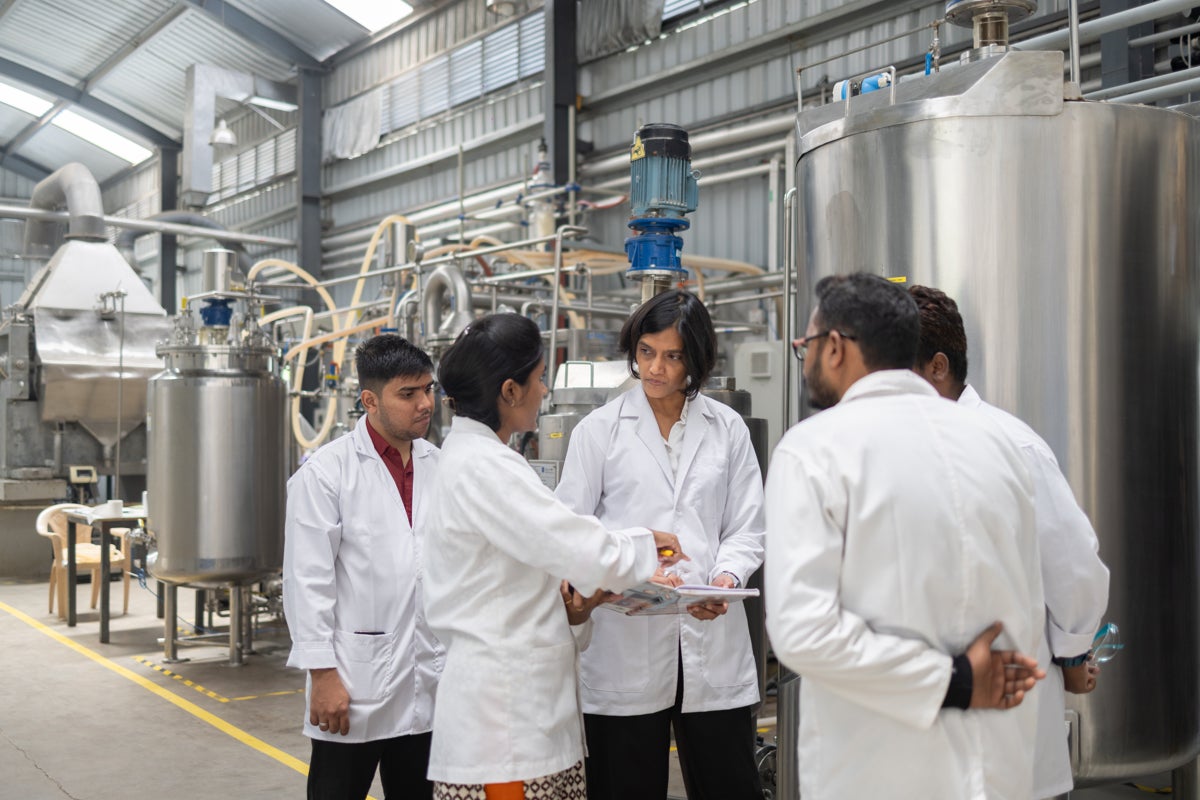
Subbian's work shows that India can create and grow its own advanced technology in synthetic biology. This means the country can compete in the international market and can also attract foreign investment to support this work.
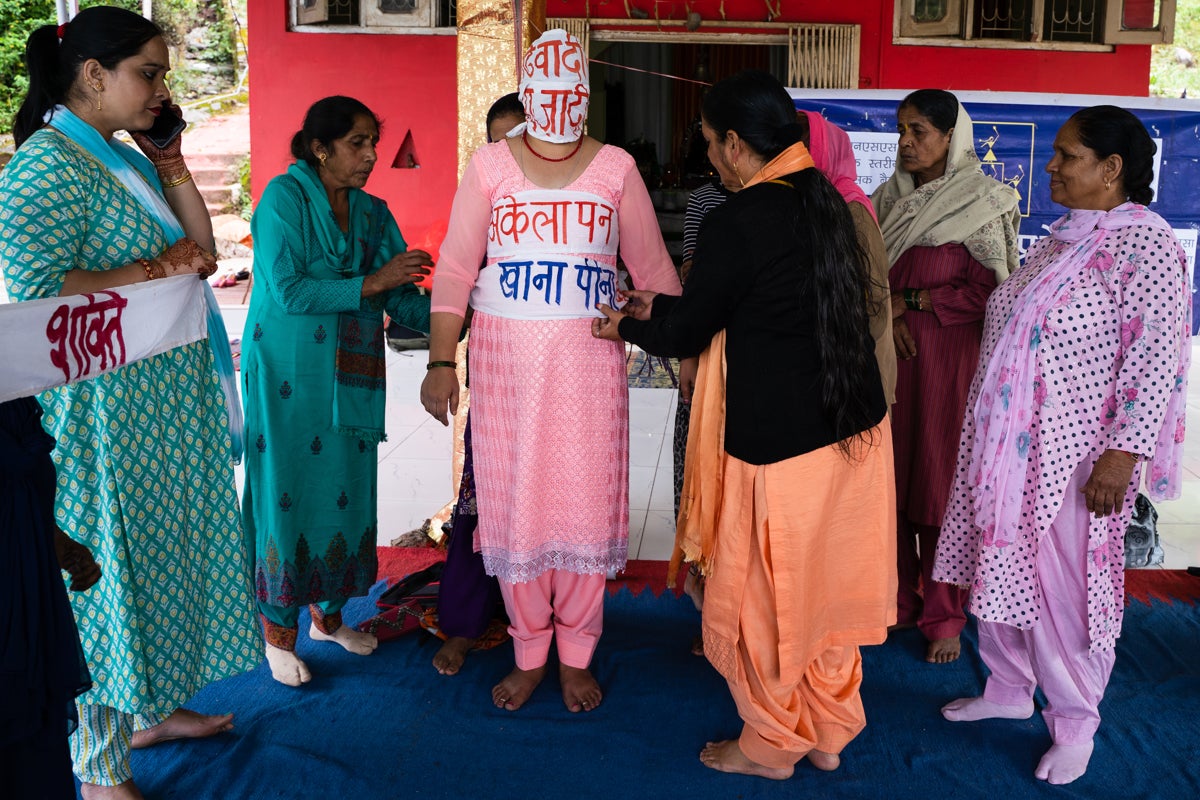
In 2005, inspired by a meeting in Rajasthan, Nirmal Chandel founded the Ekal Nari Shakti Sangathan (an organization for single women) in the state of Himachal Pradesh. In 2008, she led a group of 3500+ widows, divorced and single women, including those aged 70-80, on a transformative journey covering 45 kilometers over three days to Himachal Pradesh state headquarters in Shimla. Their purpose was to advocate for the constitutional legal rights of single women.
This impactful initiative not only infused a newfound confidence in single women to champion their dignity and rights but also sent ripples through the established order. The march's resonance was profound, compelling political and institutional leadership in Himachal Pradesh not only to recognize but also to address the challenges faced by single women in accessing social protection schemes.
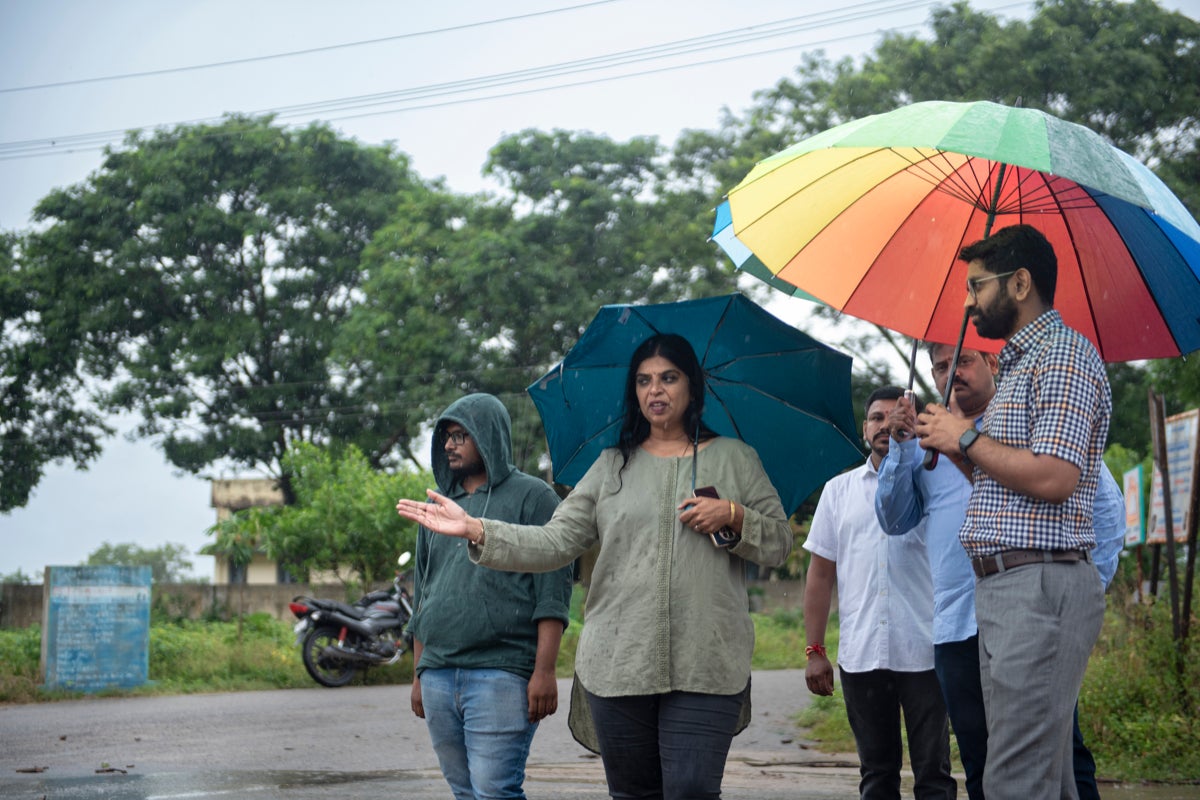
When Kalpana Ramesh, an architect and interior designer, built herself a home in Hyderabad, she created a self-sufficient water management system to harvest rainwater. ‘My water management system,’ Kalpana says, ‘is based on a fundamental law of nature. Give back what you take. Replenish what you use because it is your lifeline.’
Before long, the entire neighbourhood of 100 households asked to collaborate in the rainwater harvesting system and the residential area where Kalpana lived became the city’s first fully sustainable water autonomous area. Kalpana’s individual solution became a community’s solution. In water conservation, Kalpana has restored 13 step wells already, 20 more are scheduled. Her target is the restoration of all 600 stepwells in Telangana.
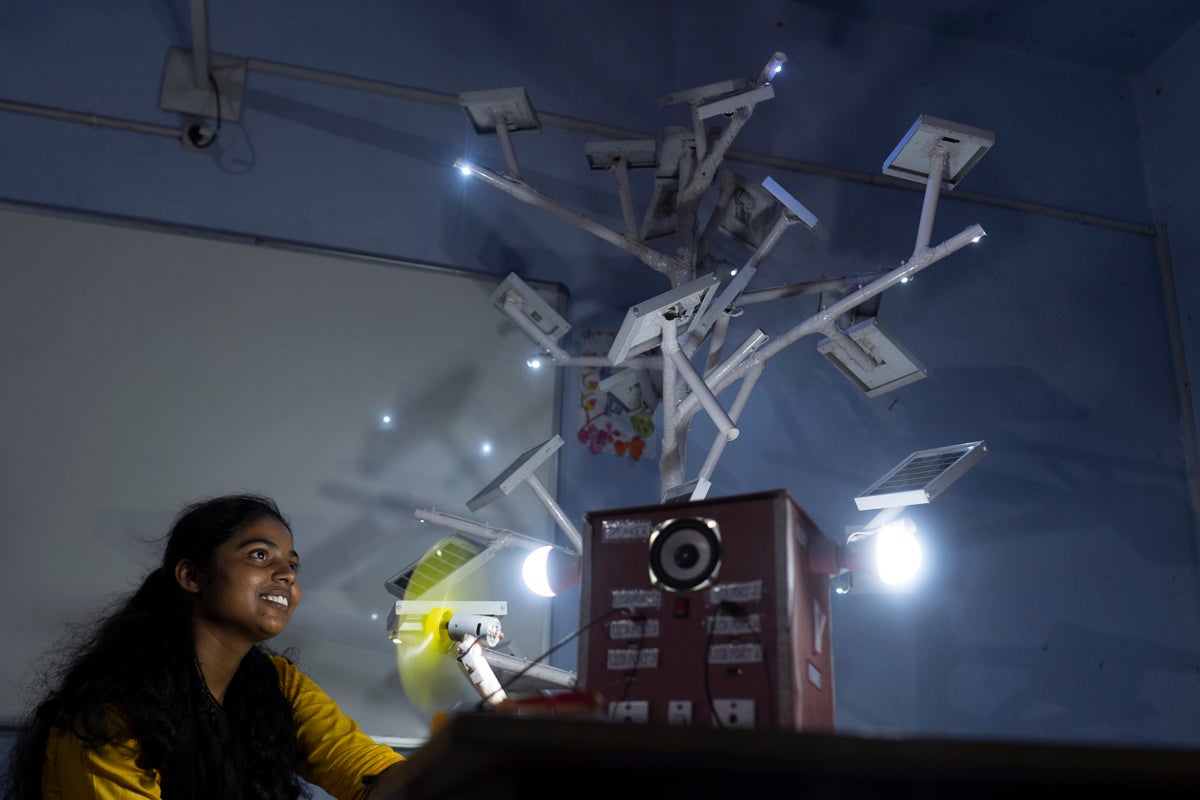
In May of 2021 Cyclone Yaas brought devastation to Odisha and West Bengal. In Dantoo village in Jharkhand, 18-year-old high school students, Dipika, Priya, Rani, Aparna, Usha, and Puja came up with an innovative idea to address the power outages brought on by the frequent cyclones that the village experienced. They were well placed to do this. They had undergone extensive hardware training to manufacture and repair LED bulbs and had studied computer skills as part of an initiative by the district authorities to promote solar energy. The device can charge a mobile through its lightning system; it enables people to stay connected and the speakers help in listening to music and news during power outages. The young leaders -- with their scientific charts, prototypes, and failed and successful attempts -- studied the available data to understand what to do. They found that their district had close to 300 days of sunlight in a year. Given that coal is limited, they turned to solar energy for creating their devices. This device, designed for the Disaster Management Unit, is culled from waste. The tripod, for instance, comes from discarded pipes, and the switchboard and batteries from other waste materials. The bulbs in the device are manufactured by the girls, as is the charging board.
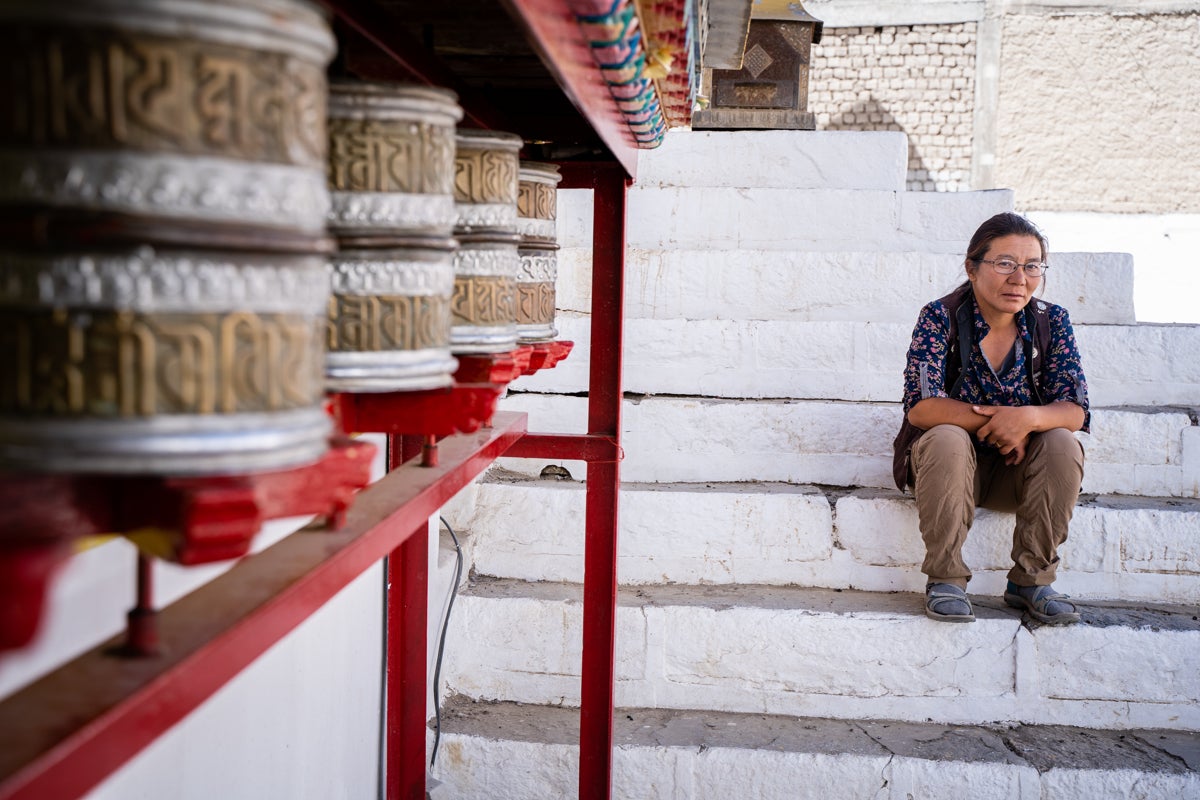
When Thinlas Chorol set up the Ladakhi Women’s Travel Company, she knew she was stepping into uncharted terrain. Tourism, a key source of income in Ladakh, has remained male-dominated. Thinlas wanted to change that. At her agency, she provides comprehensive training to women, teaching them basic English, tourist interaction skills, essential knowledge about flora and fauna and trekking techniques. Thus far, some 80 women have trained under her.
The transformation these women have undergone is nothing short of remarkable. From being shy and lacking in basic communication skills, they are now confident and well-informed women, who are challenging the gender biases in the tourism sector in Ladakh, while also setting an example for the rest of the country.
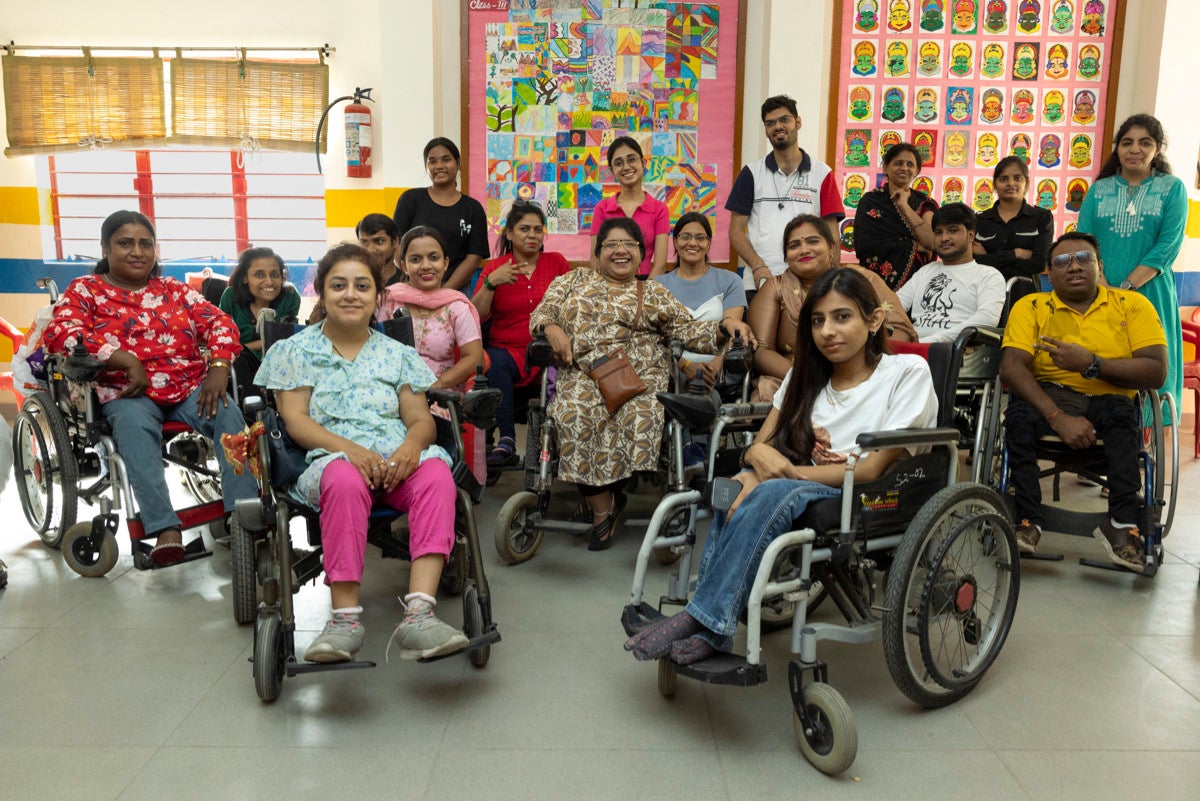
Meenu Arora Mani was born with cerebral palsy, and most schools her parents applied to, denied her admission. Finally, a school agreed to take her in, arranging for volunteers to assist her in attending classes. Later Meenu went on to complete her education through distant learning and trained herself in computer skills, debunking people’s scepticism about her ability to handle technology. ‘It would have been easy to wrap myself in a blanket of hopelessness especially when people kept asking my parents, “why are you wasting your money and time on her education? But I stayed positive.’’
And she did not just stay positive but also actively tried to bring that positivity into the lives of other people with disabilities through her NGO, “Yes, We Can” (YWC). Through YWC she provides a platform for adults with disabilities to come together, do fun things, celebrate festivals, learn from each other, pick up new skills and interact with people without disabilities to show them how those with disabilities have similar needs and aspirations. As she says, ‘we might appear to be different, but we feel the same way you do.’
Meenu’s journey is not just about overcoming personal obstacles; it is about changing perceptions, advocating for inclusivity, and empowering others with disabilities. Her leadership is marked by a deep empathy, a steadfast refusal to succumb to negativity, and an unwavering commitment to creating a society where disabilities are not seen as burdens but as aspects of diverse human experiences.
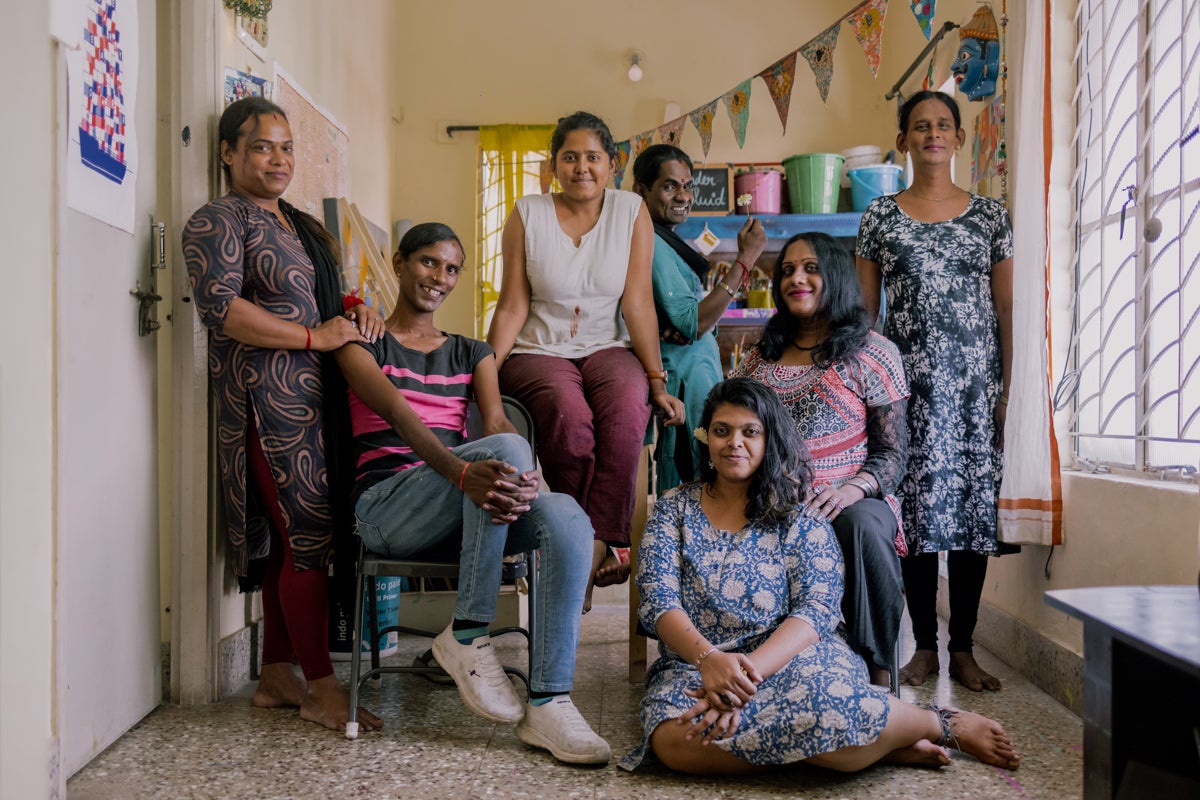
The Aravani Art Project was founded by Poornima Sukumar in 2016. Named after the Aravani festival, where thousands of transgender individuals celebrate communion with the Lord Aravan, this art collective is a for-profit organization that enables trans artists to find work that allows them to live with dignity. What started as an experiment to enable the integration of the trans community into mainstream society, today spans 40 artists across 4 cities, with art commissions across the subcontinent from Ladakh to Sri Lanka. It has given the community a platform of expression, a respectable vocation, a chance to live in dignity and most of all, a bridge for the cisgender individuals (those whose gender identity aligns with the sex they were assigned at birth) to understand gender beyond the binary.
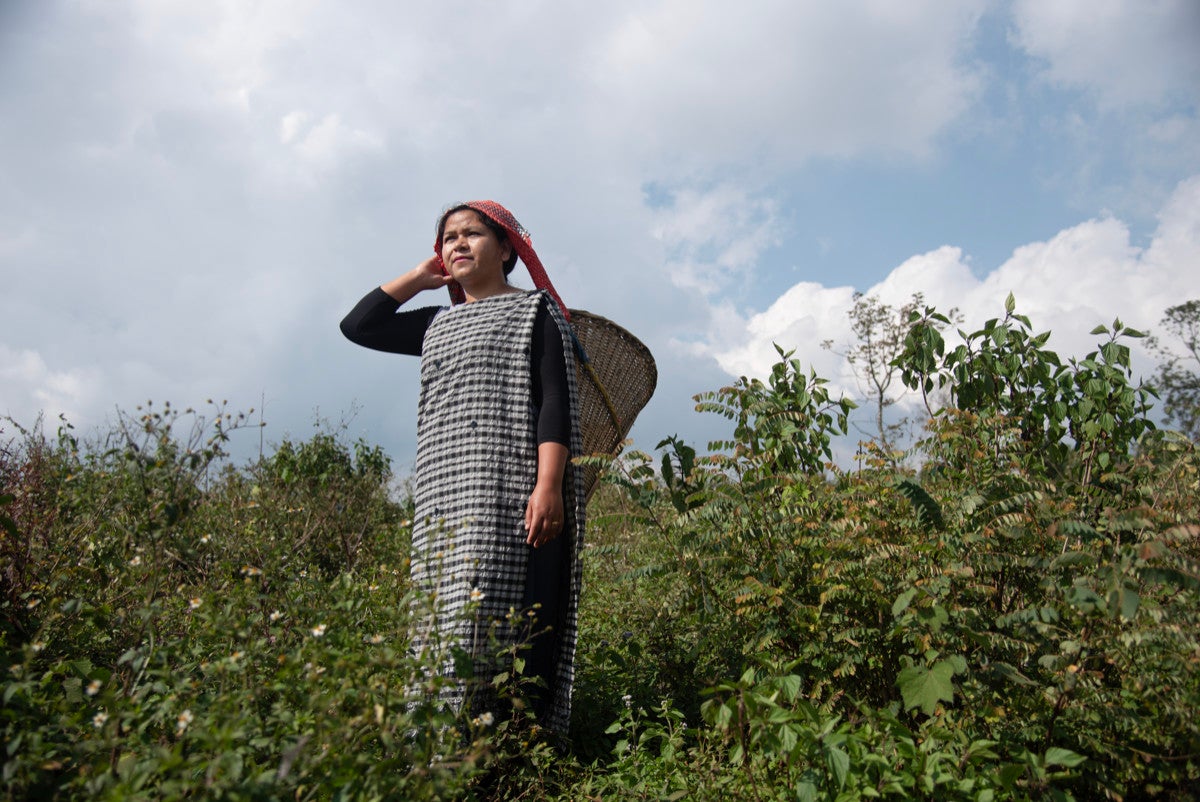
Larishisha Pdahsiej’s life changed when she was handpicked to participate in a government training programme for local communities in natural resource management. In the community she comes from in Meghalaya’s Mawtangor village, women are not expected to participate in decision-making. Larishisha’s journey took her into the heart of the community where she became a community facilitator.
Once trained, Larishisha and her fellow facilitators became the support their community needed to find innovative solutions to the issues confronting them. In the many meetings and discussions, they organized, they focused on the importance of making informed decisions in conservation planning.
It was not always easy: there was resistance and disagreements within the community especially as people were sceptical about women in leadership roles. But through persistence, Larishisha changed this perception and earned the trust of the community. Among her achievements is drafting a comprehensive natural resource management plan for her village that included proposals for forestry, planting and the construction of an irrigation channel, a testament to their dedication and commitment to collectively reshape her community’s approach to resource management.
Larishisha's leadership is characterized by resilience, effective community engagement, and the ability to inspire trust and collaboration. Her story is a powerful illustration of the impact women can have in leadership roles, particularly in areas traditionally dominated by men. Today, as part of a growing network of over 3,000 facilitators, with women constituting a significant majority, Larishisha is not just a leader in her community but also an example of women’s crucial role in environmental stewardship and governance.
The showcased women's leadership stories in this photo essay embody the Sustainable Development Goals (SDGs) in action. They epitomize SDG 1: No Poverty, as seen in Ruma's entrepreneurial endeavors and Ezhil's technological innovations, driving economic prosperity. Emphasizing gender equality (SDG 5), Shruti Nagvanshi, Nirmal Chandel, and Thinlas Chorol advocate for marginalized groups' rights, showcasing the transformative impact of gender equality. These stories also align with SDG 13: Climate Action and SDG 15: Life on Land, where initiatives like Kalpana's water conservation and Dipika Kumari's solar-powered solutions contribute to environmental sustainability. Additionally, leaders like Meenu Arora Mani and Poornima Sukumar promote inclusivity, reflecting SDG 10: Reduced Inequalities. These narratives highlight the strategic importance of investing in women's empowerment for a prosperous, equitable, and sustainable future.
_______________________
[1] Dalits or the so-called untouchables lie at the absolute bottom of Inda’s controversial caste hierarchy. Adivasis are tribal or indigenous population.